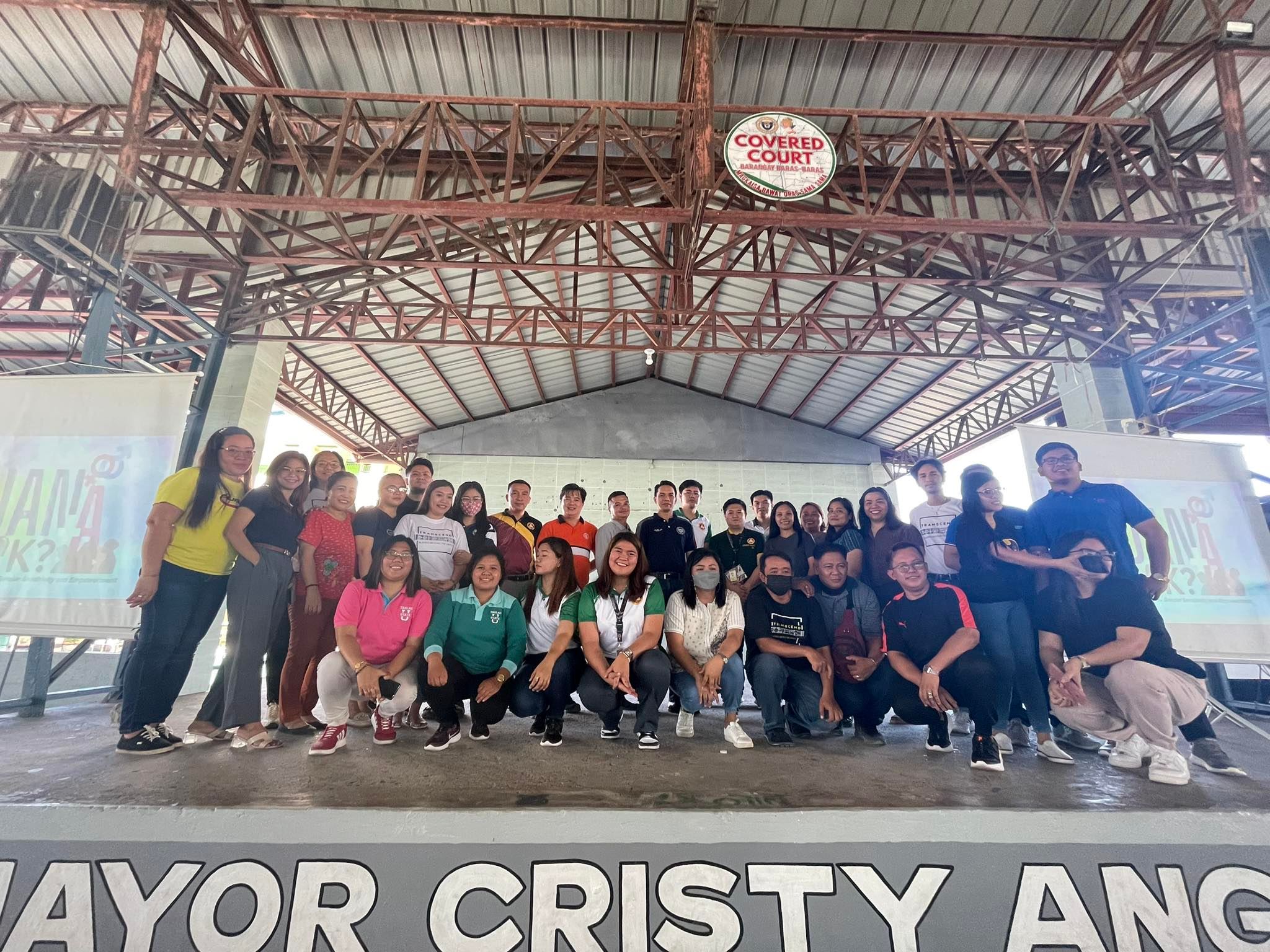On March 24, 2023, the College Criminal Justice Education at Tarlac State University conducted a seminar at Baras-Baras High School titles “Seminar on The Anti-Bastos Law or the Safe Spaces Act or Republic Act No. 11313, Training for Self Defense and Lecture on The Revised of procedure in Administrative Cases” as part of their “JUANATalk: Gender Sensitivity and Empowerment” commemoration of Women’s month. The event’s goal was to inform the students about how to protect one’s right to privacy and the safety of others. In public venues including streets, privately held establishments that are accessible to the public, and public utility vehicles, among others, the law focuses on gender-based sexual harassment. Additionally, it contained cyberspace protection and stipulated forbidden behaviors and the related punishments.
The extension activity was led by the College dean, DR. Roel R. Alviar, College Extension Chairperson, Ms. Marie Fe F. Buscayno, CCJE Faculties including Atty. Theodore M. Timpac, Ms. Lian Carla C. Luzong, Dr. Jayson R. Felix, Dr. Ramil M. Las-Igan, Ms. Girlie L. Bautista, Ms. Jelly Ann V. Mercado, Mr. Francis D. Bicoy, Mr. Jairus C. Soriano, Atty. Luisito L. Pasigon and CCJE Extension Staff.
The speakers provided valuable insights and information about the Anti-Bastos Law, Safe Spaces Act, Sexual Harassment, Basic Self-Defense, and the Revised Rules of Procedure in Administrative Cases. These topics are particularly relevant in the current times when gender-based violence and discrimination continue to be prevalent in many societies.
Dr. Ramil M. Las-Igan introduces the topic by discussing the offenses of ay unwanted and unsolicited sexual activities or remarks against anyone. Regardless of the reason for the action or statements, those are regarded as gender-based street harassment and are prohibited. Catcalling, wolf-whistling, unwanted invitations, misogynistic, transphobic, homophobic, sexist slurs, expressions of sexual comments and suggestions, public masturbation or flashing of private parts, groping, or any unwanted verbal or physical advances that have threatened one’s safety are just a few examples of the gender-based street harassment he identified.
Furthermore, Ms. Girlie Bautista spoke on the second subject, long long-term impact of sexual harassment. There may be negative impacts on the body, mind, and emotions. Some of the emotions that victims of sexual harassment may experience include anger, humiliation, shame, and sense of helplessness. Your emotions start to dwindle when you must deal with inappropriate and uncomfortable behavior at work. Weight loss, disturbed sleep patterns, anxiety, increased stress, and a reduction in self-esteem are other negative consequences of sexual harassment.
In addition, Dr. Roel R. Alviar also underlined the value of building safe spaces where people, particularly women, can feel secure and empowered. They explored how encouraging gender awareness and putting in place suitable rules and initiatives may make schools, workplaces, and other public spaces into safe ones.
Moreover, Mr. Jairus C. Soriano talked about the “Self-Defense”, so that students will be able to know their right against unlawful aggression, acquire knowledge of basic steps and procedure on self-defense and to enhance their self-discipline and become more responsible citizen in the community.
Also, Mr. Francis D. Bicoy talks about many forms of self-defense that we might employ when faced with a challenging circumstance. He demonstrated to them as well by asking one of the students how to escape the assailant.
And Atty. Luisito L. Pasigon shared his vast knowledge and wisdom in resolving matters under DepEd Order No. 49, s. 2006. The teachers were interested in his stories and hypothetical situations, which gave them useful examples from the real world and new perspectives on how the DepEd Order works in practice. The teaching team finds Atty. Pasigon’s thoughts and experiences to be quite helpful. The training session gave the employees a much-needed chance to learn more, brush up on their expertise, and have insightful conversations.
Since the seminar provides lifetimes learning and knowledge on gender-based sexual harassment in public spaces, the College of Criminal Justice Education extension program has contributed to Goal 4 (Quality Education) of the Sustainable Development Goals (SDG). Goal 16 (Peace, Justice, and Strong Institutions) is concerned with promoting inclusive and peaceful communities, ensuring that everyone has access to justice and establishing inclusive institutions at all levels. It also focuses on workplaces online, educational institutions, and training centers. Everyone should be free from all sorts of violence and feel comfortable as they go about their daily lives, regardless f their ethnicity, religious affiliation, or sexual orientation.









